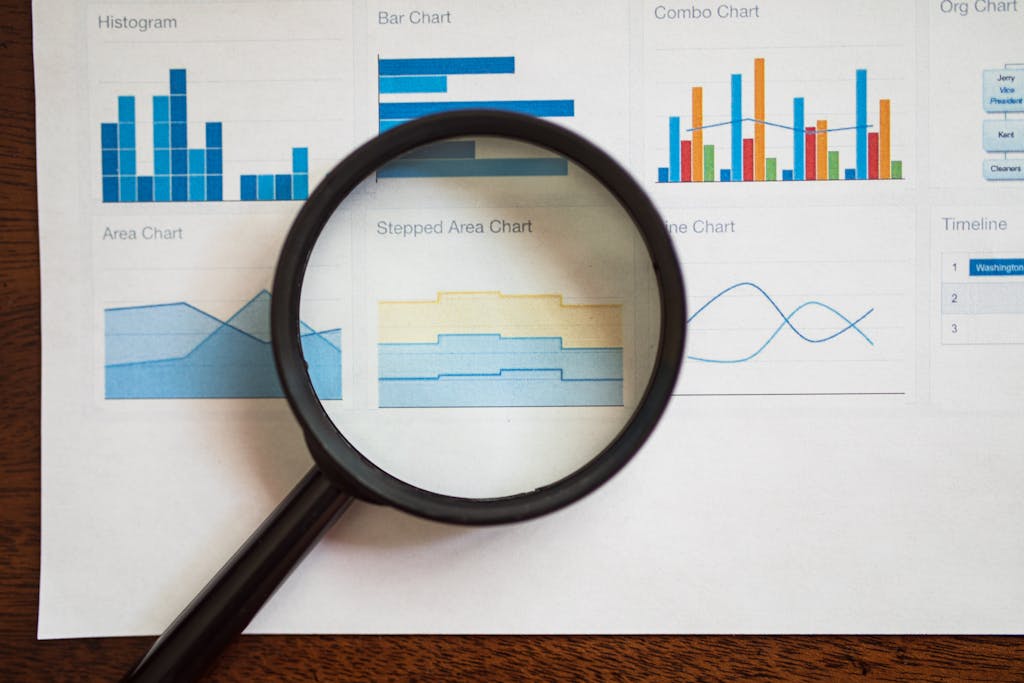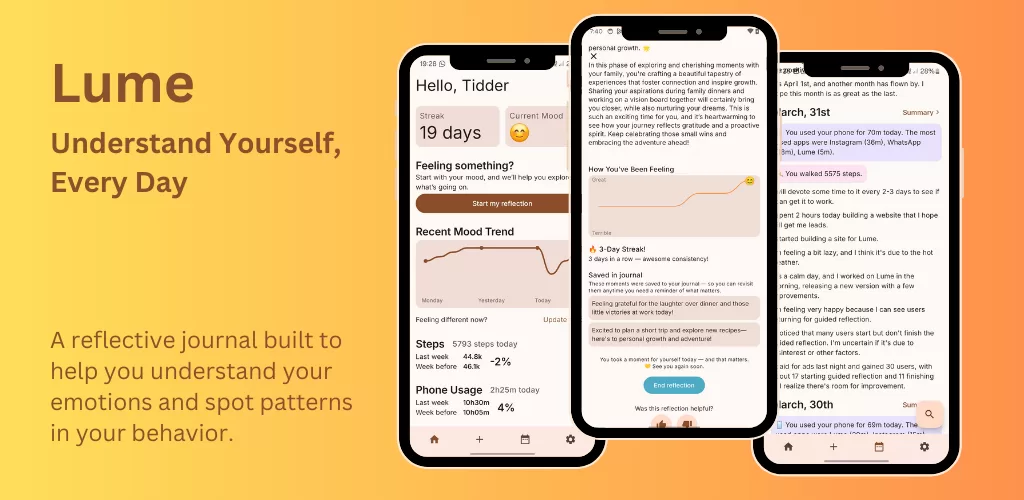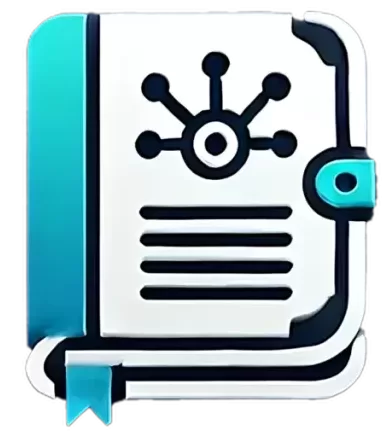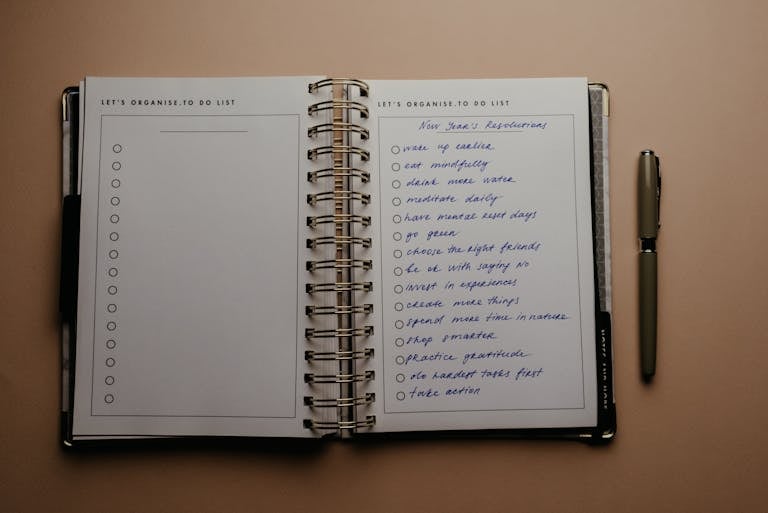What Features Should I Look for in a Mood Tracking App?
If you’ve ever found yourself asking what features should I look for in a mood tracking app, you’re not alone. With dozens of options on the Play Store, it’s easy to download something simple—but much harder to find a tool that genuinely helps you grow.
A great mood tracker should go beyond just logging feelings. It should help you understand them. Here are five features that truly matter when choosing the best mood tracking app for your emotional wellness.
1. Guided Reflections That Go Beyond Mood Selection
At first glance, mood tracking might seem as simple as selecting an emoji or choosing a number on a scale. But real emotional awareness goes much deeper. A truly effective mood tracking app should help you pause, think, and explore what’s really going on beneath the surface.
That’s where guided reflections come in. Instead of just asking “How do you feel?”, look for apps that ask “Why?” — and offer prompts to help you answer. The best apps guide you through emotions step by step, whether by letting you choose from a list of feelings, type a topic that’s on your mind, or respond to insightful journaling questions.
This structure makes it easier to be honest, thoughtful, and consistent with your entries—especially on tough or confusing days. Over time, it creates a more complete picture of your mental and emotional state, helping you track patterns and notice changes that might otherwise go unseen.
2. Mood Trends and Visual Insights
One of the biggest benefits of mood tracking is being able to recognize emotional patterns over time—but that’s only possible if your app gives you the right tools to visualize them. A well-designed mood tracking app should offer clear, easy-to-read charts that map your moods over days, weeks, or months.
These visual summaries help turn your raw mood data into something meaningful. You might notice your mood dips on certain weekdays, or that you feel more energized after exercise. Some apps go a step further by connecting mood logs with lifestyle data—like screen time, app usage, or step count—to show how behaviors may be impacting your emotional health.

The ability to see how your habits and emotions interact gives you the power to make more intentional changes in your life. Whether it’s adjusting your sleep schedule, limiting social media, or simply acknowledging how certain environments affect your mood, these insights make self-awareness more tangible.
3. AI That Understands Your Day
A mood tracking app that includes AI journaling features can make reflection easier and more natural. Whether it’s a conversation-style journal where you describe your day or a voice-to-text option for when you’re on the go, AI can help you express more and type less.
It’s like having a gentle, intelligent listener in your pocket.
4. Integrations That Add Meaning to Your Mood
Your emotional state is influenced by everything around you—sleep, exercise, social media, even the websites you visit. Some apps integrate with health platforms, screen time trackers, or calendars to add depth to your mood data.
The more context your app collects, the more accurate and useful its insights become.
5. Daily & Weekly Summaries That Actually Feel Personal
A good mood tracker doesn’t just log your feelings—it helps you make sense of them. Some apps generate summaries that highlight mood trends, shifts in behavior, or recurring emotions. These can be daily or weekly, and ideally, they read more like a journal entry than a spreadsheet.
You should feel like the app knows you—not just your data.
Bonus: Privacy, Simplicity & Flexibility
A mood tracking app should respect your privacy and feel good to use. Look for one that keeps data stored locally when possible, gives you full control over what you share, and offers a clean, distraction-free interface. Trust and ease-of-use matter just as much as features.
🌿 Final Thoughts
So, what features should I look for in a mood tracking app? Choose one that helps you reflect deeply, visualize your emotions, and connect the dots between your feelings and your habits. Look for guidance, insights, and context—not just checkboxes.
We compared top mood tracking apps — here’s what we found.
If you’re ready to try a mood tracker that brings all these elements together, Lume is built to help you reflect with more meaning, every day.






